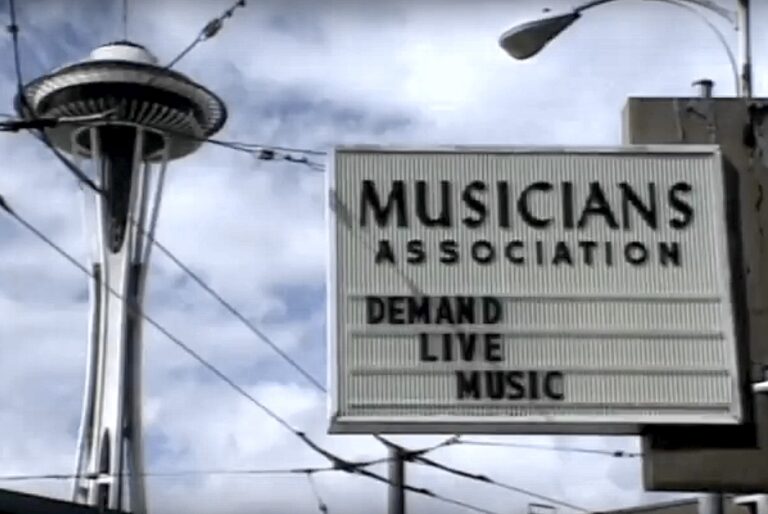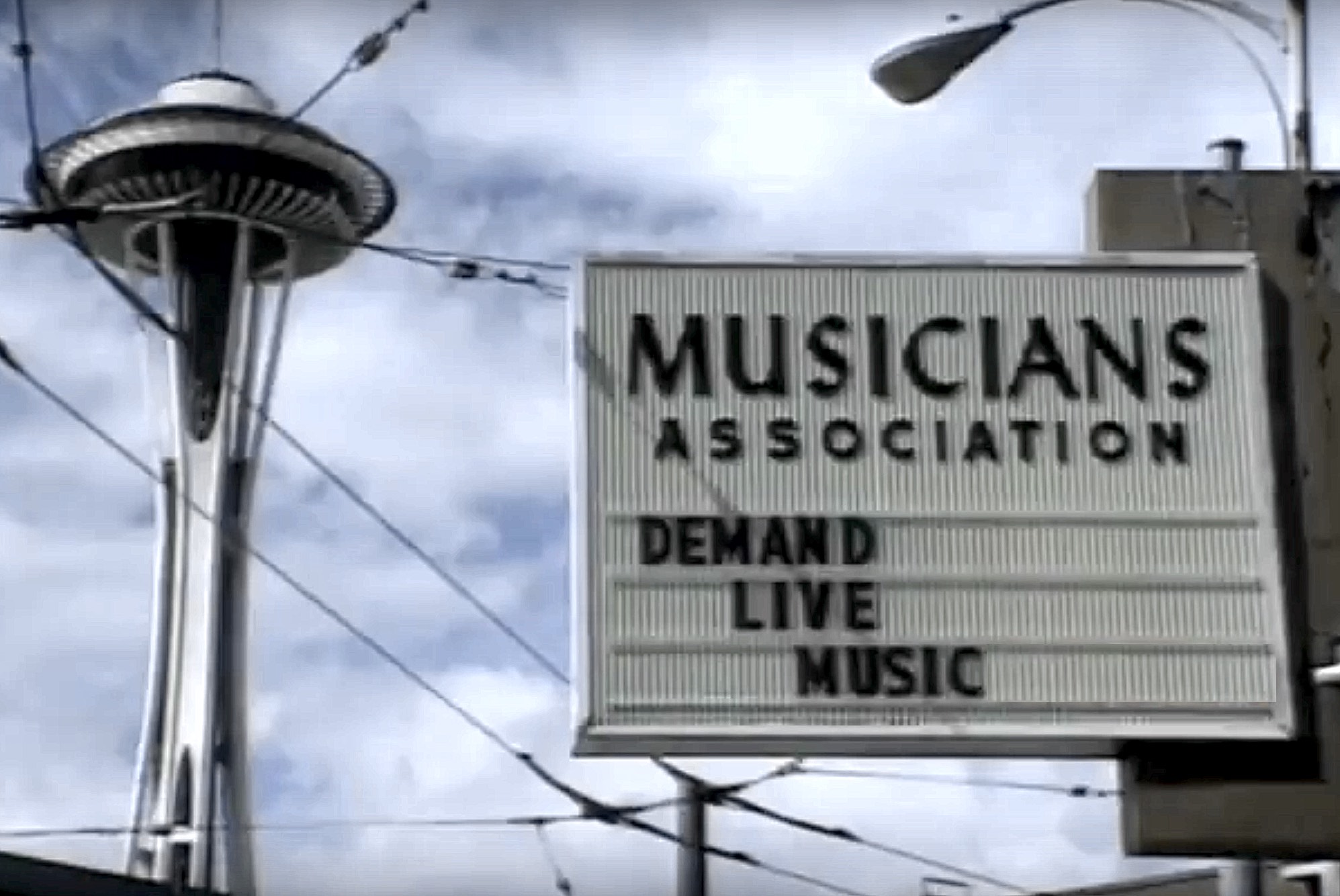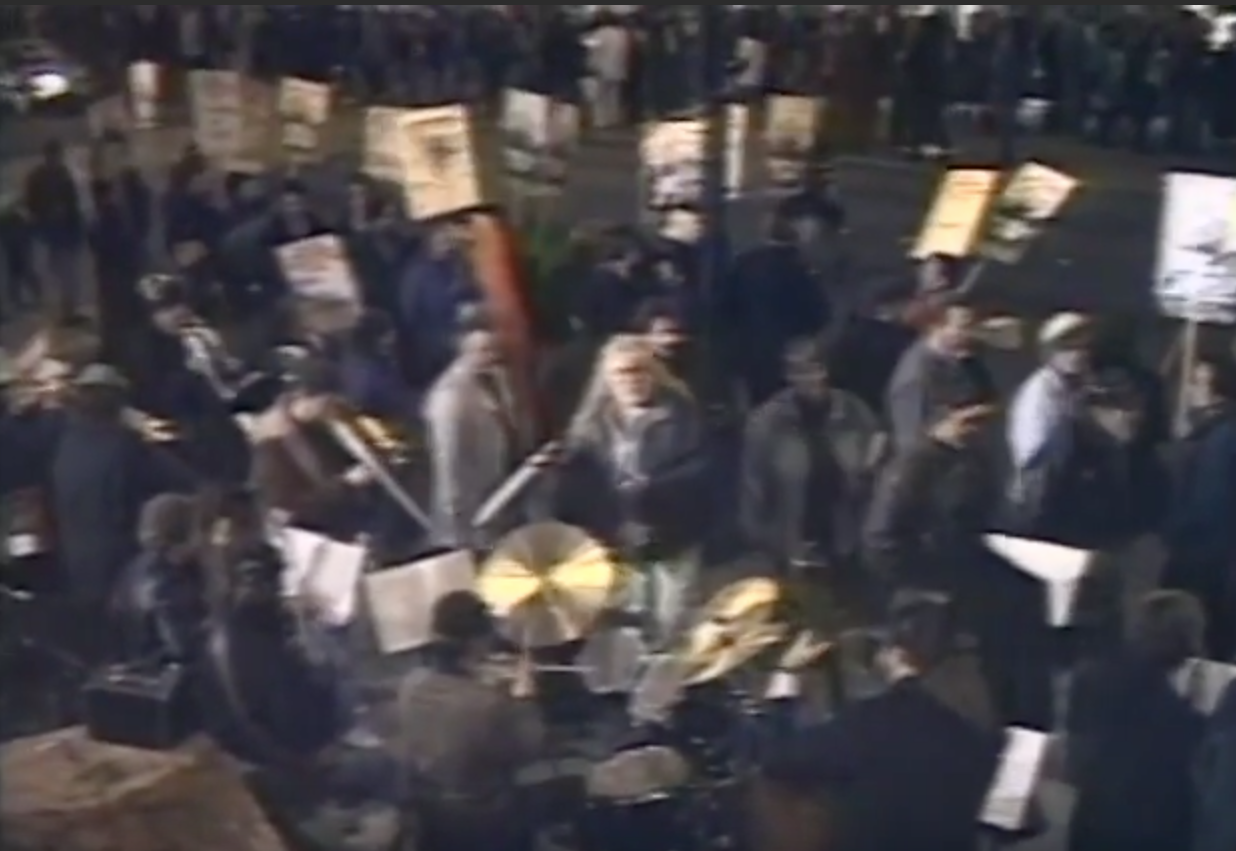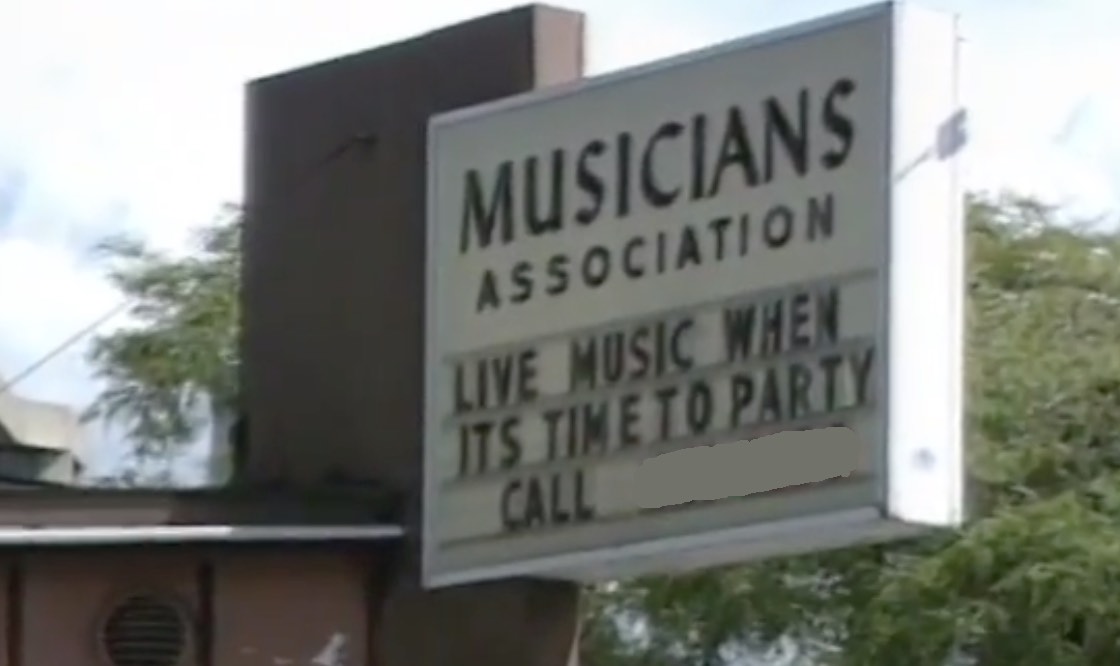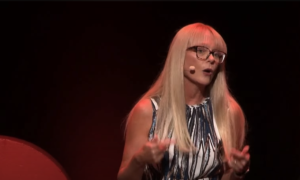In 1997, Fifth Avenue Theatre musicians, Seattle community and other unions led a successful a strike for fair wages and treatment of the workers. This documents the labor organizing strategies of the musicians and the labor community.
Eighteen musicians took on the powerful Fifth Avenue Theatre they inspired a wave of solidarity like no one had seen in Seattle.
The strike lasted two weeks. But the campaign started 10 months earlier.
Facts about Fifth Avenue Theatre
- it had 35,000 paid subscribers
- the theatre had given away $1 million to charity in the previous year
- the musicians were being paid at the bottom of the scale in comparison to other western US cities
Rosalida Aquirre
Ron Judd
Paul Hanssen – “we knew that the theatre was doing very well. The financial concessions we were giving the management.
“It was a little be scary. I wasn’t the kind of person who wanted to get in someone’s face and make waves.
Libby Poole-Pressler – “we started calling around to other locals
Bruce Wilson – woodwind player – “we discovered that we had no job protection, no grievance clause”
“At the bargaining table it was really demeaning. They treated us with absolutely no respect and they refused to look at the information we presented, and we had done an extensive amount of research.”
“If they had even come close to making a reasonable offer, we probably would not have gone on strike. We probably would have said let’s find some medium ground here.”
Rodger Burnett – horn player – “we didn’t know what was going to happen –
Scott Read – guitar and percussion – “I thought this was great because the rank and file wanted to work
“We did not get the basic things that we needed to settle the contract.”
Motter Forman – harp – “I thought the potential in this campaign was wide open. You have to have a culture in the local to mobilize people and work together for a common goal.”
“We went out and talked to the musicians one by one. What we wanted was a fair contract, and dignity for those who were working.”
“We were all galvanized by the bravery of the striking musicians, and their righteousness in their fight.”
Jonathan Rosenblue – Jobs With Justice – “People heard about what was happening to the musicians and they saw with their own eyes when they were down on the picket lines, and they realized this isn’t about the musicians alone. This is about my future and my children. That’s why there were a thousand people in the street.”
“To go from that space of strength to the bargaining table was an incredible feeling for me. The energy that I picked up from that rally allowed me to go forward another day, and last one more day than management.”
The musicians took the show out front in the street.
Theatre goers were shocked to find that the opening night show had been cancelled.
Replacement Musicians
The response was outlined in a letter from Frank Young, the Executive Director of the theatre company. He said, ‘The Fifth Avenue Theatre Company has hired permanent replacements for the musicians you represent for the full ten-week run of Beauty and the Beast.
The company cancelled the first week of shows while searching far and wide for musicians who would take the “scab” labour contracts. In Seattle there was not a musician in sight who would accept the work, out of respect and support for the striking musicians.
Management attempted to remove extra pay for doubling instruments, as well as cut the pay for the musicians on a per-show basis.
On Day 10 of the strike there were 1300 people in the street in front of the Fifth Avenue Theatre. Musicians played big band music and created a street-side celebration of solidarity.
The striking musicians prevailed. The remainder of the Beauty and the Beast run was played by the original musicians. It was hard watching the shows being played by other musicians, but it was also difficult for management to see the greatly reduced audience numbers. House numbers were bad, performances were bad, and it really motivated them to come back to the bargaining table.
“We won a collective bargaining agreement with some features that have never been in there before, such as a recording clause and a grievance procedure.”
In terms of the financial package, we did really well. In fact, it’s literally within a dollar of what we calculated was reasonable when the four of us first sat down before ever coming into the union.
“It’s about sticking together, from the negotiating room onto the street. It’s about standing together, being a unit, being explicit about what you’re asking, and being strong together.”
“You have to have a willingness to work.”
“If you can’t win at the bargaining table, you can win the campaign on the street. We won through our organizational campaign.”
“Every labour union in King County won as a result of the musicians struggle. These workers have never considered themselves as trade unions in the past, and now they have suddenly become some of the most militant workers in our city.”

